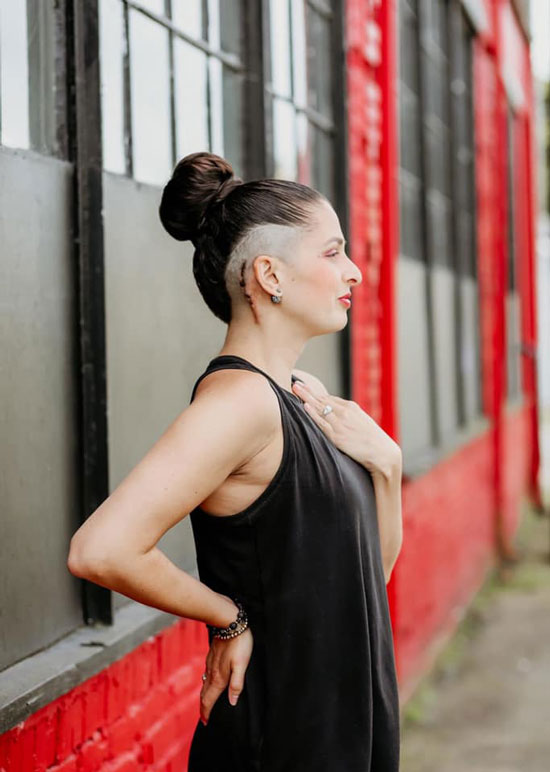MONROE — Renee Uribe-Sayah feels grateful to have half her hearing.
After all the trauma she’s endured — the domestic abuse, the migraines, the car accident, the brain tumor — sacrificing the hearing in her right ear doesn’t seem so bad.
“I’m a very positive person. I’ve never asked, ‘Why me?,’” Uribe-Sayah, 40, said. “My attitude is, ‘This is going to suck, but I’m going to get through it. It’s going to be fine.’”
In 2010 her marriage went south after her husband returned from military service with post-traumatic stress disorder and began abusing her.
In 2017, after divorcing, remarrying and moving to Monroe, she was in a head-on collision with a Ford F-250 truck in downtown Seattle.
“I suffered whiplash,” Uribe-Sayah said. “It was terrifying.”
It was also a blessing, in a way.
The accident prompted a brain scan that revealed a large tumor — her source of constant migraines and dizziness for the previous two years.
Ironically, Uribe-Sayah was on shift at her previous job as an emergency room technician when she received the news.
“I just blacked out. I handed the phone to the emergency room doctor,” she recalls. “I could not process. You think you’re going to die.”
The tumor, called an Acoustic Neuroma or a Vestibular Schwannoma, is a benign type. However, this tumor wrapped around her vestibular and auditory nerves, which control motion and hearing.
Uribe-Sayah would need surgery as soon as possible. But now she faced a new obstacle: COVID-19.
The pandemic restricted all but the most vital medical procedures. Just getting a consultation with a physician was often difficult.
Uribe-Sayah treated this challenge like a full-time job.
She refused to take no for an answer, even hand-delivering her records to the University of Washington after being told it wasn’t accepting new patients.
“She’s tenacious,” said her husband, Snohomish Regional Fire & Rescue firefighter Ray Sayah, “and she’s great at navigating the health-care system.”
Surgery was eventually scheduled at the University of California San Diego Medical Center.
It was a top-notch surgeon, but the outcome was uncertain. The worst scenario would be complete facial paralysis.
 Photo courtesy John L. Scott Real Estate media relations
Photo courtesy John L. Scott Real Estate media relations